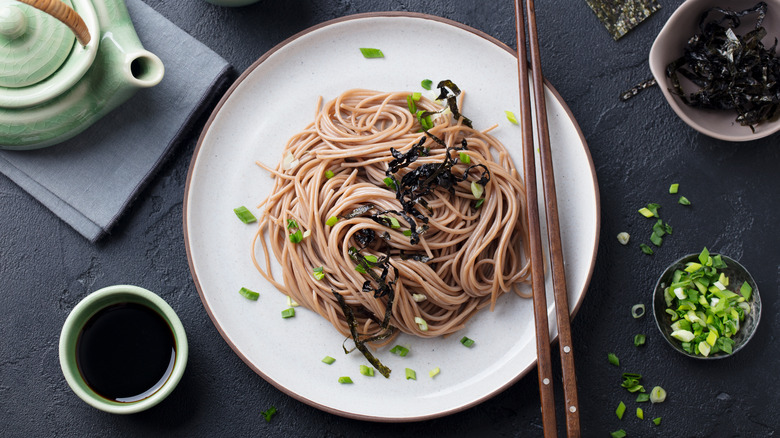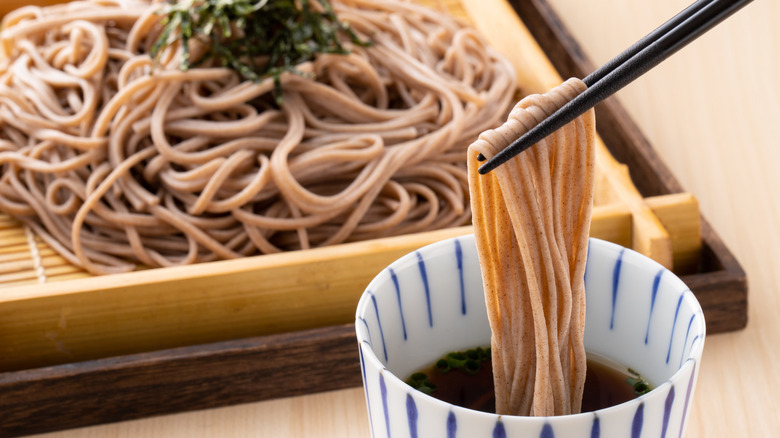How To Keep Your Soba Noodles From Going Bad
Soba noodles are unique in that they're equally delicious hot and cold, serving as the perfect addition to either a steaming stir-fry fresh from the wok or a cold noodle salad bursting with flavorful ingredients. When it comes to storing the noodles, it can be difficult to avoid ending up with one giant unappetizing clump, which is where the following tips come in handy.
First of all, until you're ready to whip up your dish, eHow explains that you'll want to store your soba noodles in a cool, dry place, like in a pantry or cupboard. Though they're different from Italian pasta, thanks to their mostly buckwheat base, they can be stored together dry and can last for months in your pantry, making them the perfect staple to have on hand, according to Fine Cooking.
There are also a few things to consider in the cooking process. Once you've cooked your noodles, there's a secret that will help you avoid that undesirable gummy texture that soba noodles can sometimes get — you simply need to rinse them. Whether you run water over the noodles in a colander or dunk them in cold water for a more involved rinse (via Food52), you need to get rid of the extra starch coating the noodles. You'll also want to drain the noodles well in order to get rid of any excess water — you don't want them sitting in a damp pile and turning mushy (via JustBento).
How long can you store soba noodles for?
Between the draining and rinsing, your cooked noodles have the potential to get a bit dried out as you finish preparing them. That's where the last storage tip comes into play. Try adding a bit of oil into whatever container you've opted to store your noodles in before you refrigerate them (via eHow). The type of oil you select doesn't matter; it's simply there to keep the noodles from sticking together when they're stored.
The life span of your soba noodles in the refrigerator may depend on whatever dish you've incorporated them into. For example, if you've added meat into the mixture, you'll want to be careful with how long you're storing those leftovers before consuming them. When it comes to just the noodles, though, you should still consume them within a few days. According to JustBento, you should also place them in the coolest part of your refrigerator if possible.
If your soba noodles didn't quite turn out the way you wanted, examine the packaging for the percentage of buckwheat in the product you bought. About 70% to 80% buckwheat is the ideal ratio, according to Bon Appétit. A lower percentage may yield noodles prone to that undesirable gumminess, and a higher percentage could cause issues in the cooking process with noodles that fall apart.

